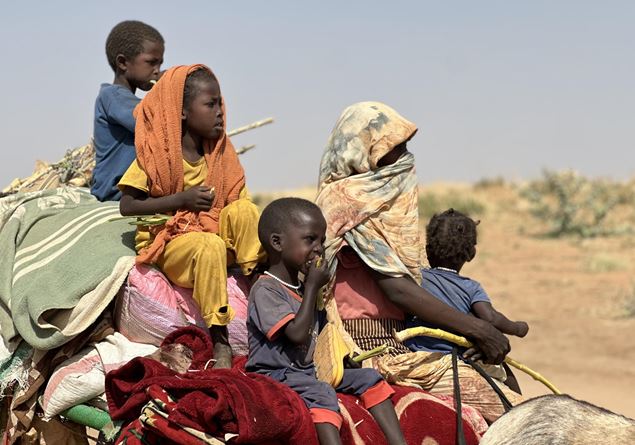Coopi project in support of motherhood in the Democratic Republic of the Congo.
The world sinks more and more in the war. In the last year, the number of armed crises that have led to a strong increase in humanitarian need has dramatically climbed: The Uppsala Conflict Data Program (UCDP) counted 61 active conflicts with the participation of at least one state, the highest figure since 1946. In 2024 there were 56 armed crises at the global level. It is estimated that only in 2024 at least 233,000 people were killed in episodes of armed violence – on average, 638 victims per day, one every two minutes) and that there have been more than 123 million displaced people – due to persecutions, armed conflicts, violence, violations of human rights and other events that seriously threaten public security.
The disturbing scenario was described on the occasion of the tenth edition of the “Coopi Cascina Open” appointment in Milan, As part of which the NGO, which this year reached the milestone of sixty years of life, presented the social budget 2024.
“In the current year”. explained the president of Coopi – International cooperation Claudio Ceravolo – Surgeon who spent many years of his life in Africa, first as Coopi volunteer then with Italian cooperation – “There are 305 million people who, all over the world, are in conditions of need for humanitarian assistance and protection, but often remain unheeded, if not completely forgotten”. Ceravolo added: “In addition to the very serious conflicts in Gaza and Ukraine there are many other areas of the planet where violence and humanitarian crises are very intense, but remain totally in the shadows”.
This is the case of southern and eastern Africa, which host the largest number of needy people (about 85 million), almost a third of the total worldwide, with the crisis in Sudan representing 35% of the total of the region.
“With Coopi for 60 years we are alongside the populations affected by humanitarian crises, even the ‘invisible ones”, he underlined Ennio Miccolidirector of the humanitarian organization. «The last year has been particularly difficult and, in tracing a picture of the complexity that we must manage, we cannot fail to mention the reduction of public funds, in particular, for humanitarian aid: In 2024 a significant contraction occurred and the negative trend continued in 2025 and promises to be worrying proportions also for 2026. Despite this, we continued our humanitarian aid activities in numerous territories: among these, Sudan, Syria, Lebanon, the Democratic Republic of Congo and Venezuela have seen us strongly engaged, countries affected by serious emergencies in which, in many cases, we have responded to urgent needs in terms of nutritional safety and protection of the most fragile “.
Miccoli continued: «In an international context characterized by an increasing number of wars and complex crisis, for humanitarian organizations it will be increasingly important to have the ability to manage emergencies. The development of operations and the effectiveness in the field of humanitarian aid will be central. It is in this direction that Coopi has long started a process of ‘localization’ of activities, which provides for a greater protagonism of local non -governmental organizations in the various countries of intervention “.
(Photo Ansa: displaced Sudanese due to the conflict in North Darfur)


